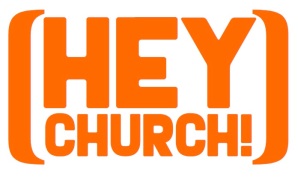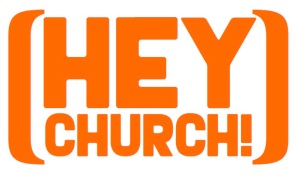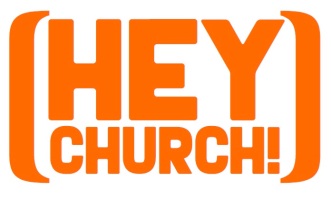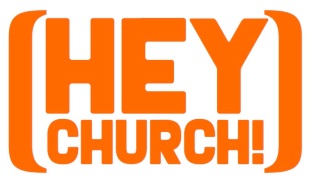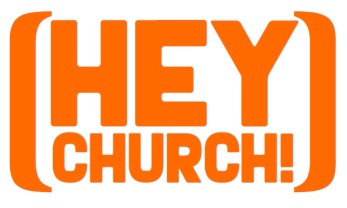Unless you don’t pay attention to anything in pop culture, you will have noticed that there has been a lot of hubbub about this show on HBO called “Game of Thrones.” It’s a show in the medieval fantasy genre that is quite dark. A recent
article in USA today posed the question whether Christians should watch it. Since I have been watching it along with 5.5 million people, I thought I would throw in my opinion. My one disclaimer is that there is a lot of talk about what Christians should and should not watch and I am sure some have much more developed thoughts than mine (
read this and let me know).
Let’s begin with this question: why does anyone watch it? Primarily, people watch because it’s a high-quality show based off a best-selling book series by George R.R. Martin. It has great plot and character development. It has complex story lines with complex characters where there are no clear good guys or bad guys. It has dragons, weird religions, sorcerers, and a mysterious frozen zombie horde. It has warring clans, revenge, political intrigue, and huge world where everyone is fighting for power. Did I mention it has dragons? Despite all of this, what we are exploring is whether a Christian should watch it.
There are some whose opinion it is that people should not watch anything with morally objectionable material. There are others who think this whole conversation is silly and irrelevant. It’s just a TV show. I think both are simplistic views. Lets start with the objections. It has a lot of sex, violence, sorcery, and seems to have no “redeeming qualities.” The sex is obnoxious most of the time and even some critics have coined the term
sexposition to describe the cheap ways the GoT plot is advanced through sexual content (we always fast forward through it since we often watch it on a 10-15 minute delay). If you can’t stomach the violence in GoT, then you also shouldn’t watch Gladiator, Braveheart, or any other great movie involving war, especially war scenes involving swords. What might cross the line here regarding violence are the torture scenes, especially in Theon’s case (since at this point it seems to serve no purpose). As for the sorcery, I actually think the way magic is done in this show is brilliant. It occurs rarely, mysteriously, and often on the periphery. The viewer is not quite sure if these religions are real, and some characters in the show even disbelieve in any of the old stories about the gods (sounds like the modern world). Lastly, Martin seems to have created a nihilistic world in which “you win or you die.” Even when someone wins, the victory often creates more problems than it solves.
I think it should go without saying that if you think it is not beneficial for you to watch due to the content, then don’t watch GoT. If you struggle with pornography, hate violence, or are tempted to try some black magic because you think Harry Potter is real, don’t watch it. However, anyone who thinks this is a “meat sacrificed to idols” thing (1 Cor. 8-10) should consider that early Christians found it highly objectionable to go to the coliseum or even watch plays at amphitheaters (I don’t know exactly why, though some of the reasons should be obvious, e.g. death of your brother by lions).
However, I think looking at the moral content of the show is missing some deeper themes. Beneath the sex and violence are themes that are more revealing of the way people think about the world that drive those immoral actions. The first theme is what the producers are quoted as saying- that, in this world, “no good deed goes unpunished.” It’s a bleak outlook and it is what made the “red wedding” so tragic. Often times the flawed characters you are hoping will bring justice get killed first, which is quite depressing and infuriating. This world does seem set against good people- something virtually guaranteed in the New Testament with the teaching that a Christian who lives righteously will suffer and be persecuted (
2 Tim. 3:12; cf.
Matt. 10:16-34). The second theme occurs on the other side of the sea. The whole storyline of the character Daenerys Targaryen to this point has essentially been a picture of overcoming oppression. It is a good picture of liberation theology and Marxism, where the oppressed often become the oppressors due to the corrupting force of power. She frees the 99% by brutality killing the 1% ruling the city. A third theme is that truly no one is innocent in this show. No matter who gets killed it is hard to argue they were an innocent person. How is this not consistent with a Biblical worldview concerning sin? Take Arya Stark as another example. As much as we are rooting for her, she is becoming obsessed with vengeance. The death of her enemies may be just, but it is unlikely it will occur through purely just means. Like GoT, the Bible contains a lot of “objectionable” material but that is partly what makes it so great. The rawness and honesty of it all. Often times the most obvious immoral act is just scratching the surface of the deeper and more sinister spiritual evil that motivated the act (2 Sam. 11). The book of Judges is a good parallel to GoT. In Judges, God seems to be on the sidelines and withdraws more and more as people get worse and worse. I will be impressed (and severely depressed) if Martin ends this series as bleakly as the book of Judges.
Regardless of its merits, let’s not forget GoT is a fantasy world and it’s entertainment. That doesn’t mean media does not affect us, but we shouldn’t blow it out of proportion. I do believe what we watch affects us, but not to the degree that thinking about sinning or actually acting on sinful thoughts does. I don’t think any Christian, regardless of whether they think their conscience permits them to watch it, should not feel remorse for the brutality of it. It’s horrible and Martin does everything he can to make you feel for his characters when they die. But that’s good story telling, and is not a sin in itself. I don’t know if the series will have an ending that will make up for all the brutality, I think it most likely won’t. What the viewer should watch for is what gives rise to their affections for a given character? Which do you resonate with and why? Do you struggle to resist the temptations of power, sex, or money, taking advantage of people along the way? Do you desire revenge? Are you prone to despair and view the real world as being as dark as this fantasy world? Or do you distance yourself perhaps too much from the real brutality and unfairness of this world, blindly thinking life is all bunnies and lollipops?
Let’s not forget there is no rider on the white horse in this series. There is no savior in the world of Westeros. But in the real world we have a hope beyond the brutality and unfairness, a great hope that the King of kings, and Lord of lords will one day establish justice for all eternity. The Bible ends with a picture of the world thrown into far more chaos, death, and immorality than the world of the Game of Thrones. Unlike the cries of the characters in GoT, the prayers of God’s people who have been mercilessly killed and martyred have collected symbolically as incense in a censer (
Rev. 8:1-4). The censer is finally poured out as God’s wrath begins against all wickedness and evil and he finally brings the justice everyone has longed for. Prayers for justice will finally be answered. The only one who can wield such justice rightly will come, and “the meek shall inherit the earth,” (Matt. 5:3-10). He will come and vindicate all those who have loved their enemies and have trusted in him and his justice by faith. ”Will not the Judge of all the earth do right?” (
Gen. 18:25) asks Abraham and all those who have experienced great evil and injustice. Revelation answers with an emphatic YES. The rider on the white horse, Jesus Christ, will come once and for all to establish a world without evil, suffering, and injustice because he defeated satan, sin, and death on the cross (
Rev. 19:11-21). Come Lord Jesus, come quickly. Because I don’t want to live if the Lannisters continue running the show.
